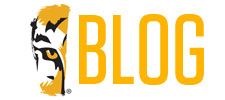“What’s the best advice for using my tax refund? ”
– Anonymous
Great question! It sounds like you’re looking to make some real momentum with your finances in 2019. It’s smart to start thinking about your tax refund early. With several thousand dollars potentially coming your way, what’s the best way to make that money count?
#1 Pay off high-interest debt
High-interest debt is one of the biggest hurdles to overcome if you want to build wealth. When you owe money on credit cards or carry personal loans with high interest rates, it’s difficult to get ahead when so much of your payment goes to interest only. Making an extra payment toward the principal of your credit card or loan balances will help you save on interest automatically while moving your debt payoff date that much closer.
#2 Contribute to a Traditional or Roth IRA
Even if you contribute to a 401(k) or another type of employer-sponsored retirement account, you may also be able to add money to a traditional or Roth IRA. Both traditional and Roth IRAs are easy to open and simple to use and understand.
The big difference between them is that traditional IRAs allow you to contribute pre-tax dollars and deduct your contributions if you meet certain income requirements. Roth IRAs, on the other hand, let you contribute after-tax dollars and allow you to take tax-free distributions when you retire. Roth IRAs also have income limits that make it harder for high earners to contribute.
#3 Save to a rainy day fund
Whether you carry some high-interest debt or live a debt-free lifestyle, building an emergency fund is essential for your financial health. Without an emergency fund, you’re prone to struggle if you face unexpected financial emergencies like surprise medical bills, expensive home repairs, or a layoff. If you have a savings account, consider adding your tax refund to the pot. If not, open a high-interest Money Market account and start funding it today. It’s suggested to stock an emergency fund with at least three to six months of expenses, but even a smaller amount can be life-changing later on if you find yourself in a situation where you’re suddenly desperate for cash..
#4 Start several savings buckets
If you have competing financial goals and want to save for all of them, starting several different savings accounts can be a smart move. You could spread your tax refund across several accounts like a Vacation Savings, Holiday Savings, and Health Savings for starters, then commit to weekly or monthly contributions so each savings bucket will grow. By starting a few different accounts, you could give yourself a head start toward achieving everything you desire.
The best advice we can give is to try spreading your refund around to a couple of these things. It never hurts to squirrel away for a rainy day, but paying down the high-interest debt will save you the most money in the long run.


